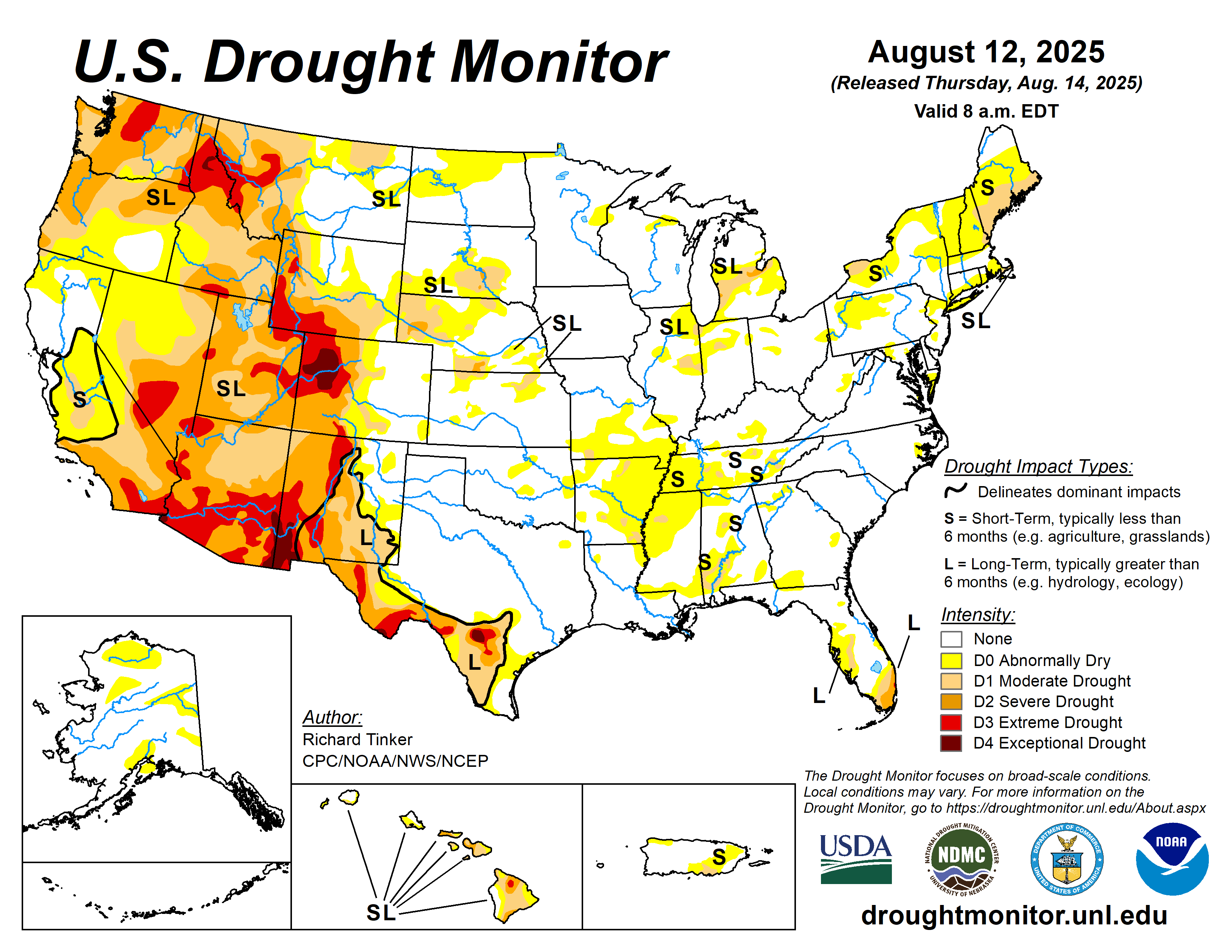

Station Number: OH-HM-24
Station Name: Cheviot 3.4 W
Report Date: 7/18/2020
Submitted: 7/18/2020 6:21 AM
Scale Bar: Mildly Dry
Description:
Only 0.48 inch of rain in the past week with no measurable rain in the past 5 days. 1.75 inches of rain in July. Soils are dry. Dry conditions have persisted for some time. Temperatures have been well above normal with high drying rates. Lawns are beginning to brown with some areas getting quite brown. Drought and heat stress in some landscape plants. Watering is becoming increasingly important.
Categories: General Awareness
Agriculture
Business & Industry
Plants & Wildlife
Society & Public Health
–
This report is specifically for the Arbor Doctor’s location 3.4 miles west of Cheviot, OH, in the western suburbs of Cincinnati in southwest Ohio. This location is also an official cooperative observation site for the National Weather Service listed as Cheviot 3W.
What is the Condition Monitoring Report? See these links for more information:
–



–
Search condition monitoring reports for the entire US>>> ![]()
CoCoRaHS Condition Monitoring Report Map>>>


Please remember to water…correctly!
Water once per week, one inch per week, under the entire branch spread, in the absence of rain, May through November. Either rainfall or your watering should equal the one inch per week. Put out a sprinkler and a straight sided soup can or rain gauge and measure one inch per week.
Watering: How and when>>>
Watering Trees and Shrubs>>>
Soil Moisture Index:

Meteorological Versus Astronomical Seasons. Summertime!
Spring: March 1-May 31; Summer: June 1-August 31; Fall: September 1-November 30; Winter: December 1-February 28 (29)

You may have noticed that Arbor Doctor, meteorologists and climatologists define seasons differently from “regular” or astronomical spring, summer, fall, and winter. So, why do meteorological and astronomical seasons begin and end at different times? Climatologically, the period July 14-21, the mid-point of meteorological summer, is the hottest week of the year and the period January 14-21, the mid-point of meteorological winter, is the coldest week of the year over much of the continental US including the Ohio valley.





